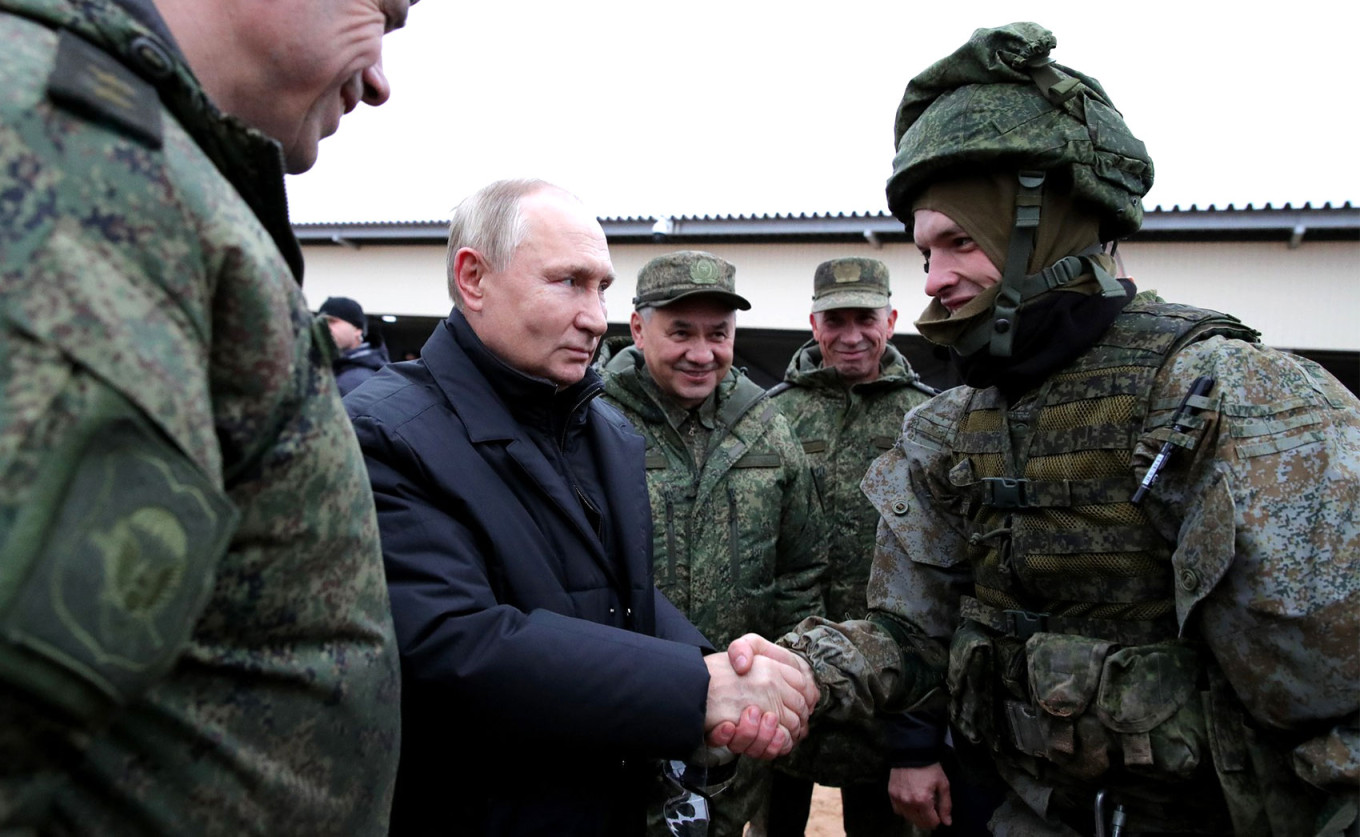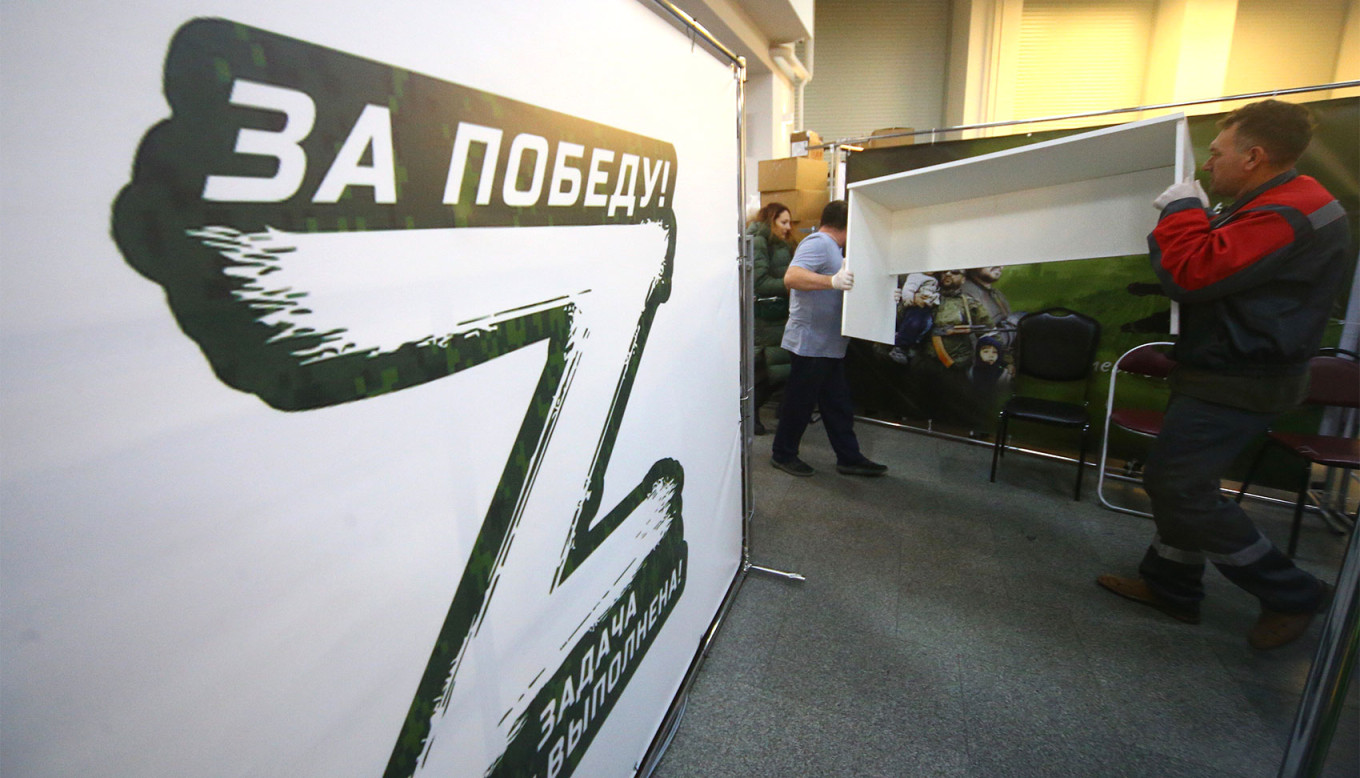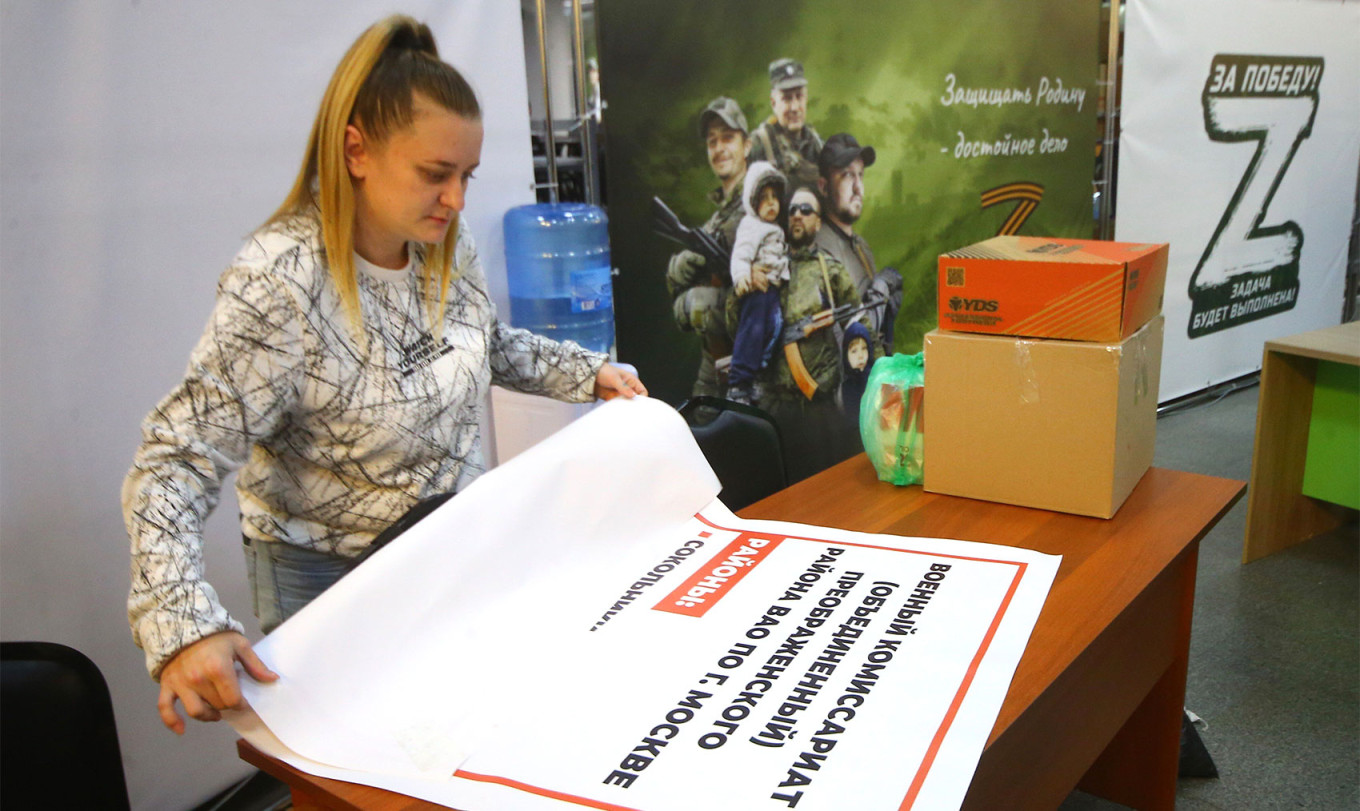After the initial rush to get out of the country spurred by rumors of border closures, many found themselves facing the tough reality of trying to make ends meet in an unfamiliar city.
“My brother and I tried to find a job in Kazakhstan — at the very least a fictitious one to get a residence permit — but nothing came of it,” said Pavel, 21, from Moscow, who returned to Russia after three weeks in the Central Asian country.
“I fled because of the general panic,” he told The Moscow Times, requesting anonymity to speak freely. “The trip cost us 100,000 rubles ($1,650), but what’s done is done.”
Russia’s drive to conscript fighting-age men that began in late September triggered an unprecedented human exodus, with flights selling out and days-long lines at land border crossings, as those of draft age like Pavel sought to get out as soon as possible.
Kremlin officials reportedly estimated 700,000 men left the country in under two weeks.
Now, however, the flow of men in the opposite direction is gathering pace. Many appear to have been influenced by official pledges that nobody else will be drafted.
Putin told reporters Monday that “mobilization is complete” and Defense Minister Sergei Shoigu said last week that Putin’s goal of calling up 300,000 reservists had been achieved.

Vladimir Putin and Defense Minister Sergei Shoigu visit a military training ground in the Ryazan region.kremlin.ru
Moscow carpenter Semyon, who declined to give his surname, said he decided to go back home from the South Caucasus nation of Armenia after Moscow Mayor Sergei Sobyanin announced mobilization in the Russian capital was complete.
“The police have stopped catching men on the streets and in metro stations,” said Semyon, who left his wife and two daughters in Moscow.
Nevertheless, many remain wary, fearing a second wave of mobilization could be launched if Russia continues to suffer heavy casualties in Ukraine.
“I still think coming back was a stupid decision, but it’s hard to resist emotions,” said Pavel, whose girlfriend remained in Russia while he was away.
Pavel’s brother, who declined to give his name, is still in Kazakhstan, but told The Moscow Times that he intends to travel to Russia soon.
“Forced emigration, especially alone, is mentally difficult,” he said.
“[But] it’s scary to go back. Although technically I can’t be mobilized because I work in IT, this does not guarantee anything in Russia.”
Those returning not only face possible jail time if deemed by authorities to be draft dodgers, but also a general stigma fueled by official rhetoric.

The cllosure of a temporary mobilization point in Moscow.Sergei Vedyashkin / Moskva News Agency
Influential Russian lawmaker Andrei Klimov said last month that those who evaded mobilization by leaving the country could be designated “foreign agents” — a derogatory Soviet-era label that mandates onerous financial declarations.
And the head of Russia’s Federation Council, Valentina Matviyenko, called Russians who went abroad “rats” and said that they were not welcome in the country anymore.
Experts have predicted throwing poorly-trained conscripts will not reverse Russia’s military fortunes in Ukraine, warning that Russia could restart mobilization if it continues to suffer defeats on the battlefield.
The authorities could send out draft notices again later this winter, independent media outlet Meduza reported last month, citing unnamed Kremlin officials.
One businessman from St. Petersburg, who is currently living in the Armenian capital of Yerevan, said he was planning to go back to Russia — but not quite yet.
“I left the business in Russia and it continues to operate,” he told The Moscow Times, requesting anonymity to speak freely. “I believe that everything will end soon and I will return to Russia… I love my country despite the fact that it is a little sick.”

The closure of a temporary mobilization point in Moscow.Sergei Vedyashkin / Moskva News Agency
Carpenter Semyon, who recently returned to Moscow, said that if the Kremlin starts drafting men again, he will again look to leave the country.
“If there is a second wave of mobilization, then I will try to leave,” he told The Moscow Times. “But this time it will be with my family.”
That large numbers of Russians are returning home as mobilization winds down is no surprise for Nika Karchevskaya, 24, who moved to neighboring Georgia shortly after the start of the Russian invasion in February and volunteered to help those fleeing in late September.
“There were those who left with no more than 10,000 rubles ($165). You should have seen the poor souls! They didn’t even have jobs they could do online. I don’t know what they were hoping for,” she told The Moscow Times.
In particular, Karchevskaya was involved in helping Russians navigate the huge lines that formed at Russia’s only land border crossing with Georgia following the mobilization call.
“Many of those whom I helped to leave have already returned,” she said.
“I think about half of the refugees will go back to Russia.”